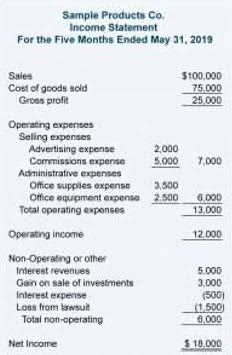
For example, a company’s yearly tax return may be in excellent shape, but quarterly financials require professional examination too. CPAs concentrate on financial planning, equities, taxation, mergers and acquisitions, and other areas of accounting assist people and businesses with a variety of issues. One of the things I really like about accounting is that there are many different jobs available. I decided that I wanted to start my career in public accounting in order to learn a lot difference between accountant and cpa in a short period of time and be exposed to different types of clients and different areas of accounting. I was fortunate to get a job offer from a midsize CPA firm in New England while I was a senior in college, and I spent many years working there as an auditor. Becoming a CPA demonstrates your commitment to professionalism, ethics, and excellence in the accounting profession.
Advisory Services

A typical certified public accountant job description includes numerous CPA duties and tasks. Certified public accountants perform a wide range of accounting, auditing and tax activities. These skilled professionals ensure private businesses, organizations, public firms and government agencies comply with federal and state law by properly reporting revenue and paying taxes. One of the many important CPA duties is to analyze a company’s structure and activities and advise management on the tax ramifications of business decisions. Bookkeeping for Chiropractors A CPA is a certified public accountant, and is engaged in a number of advisory roles for his or her clients. Of the following activities, the only one that a CPA is specifically certified to do is the audit.

What Can a CPA Do that an Accountant Can’t?
CPAs can thoroughly analyze your financial statements, including cash flow and balance sheets, to assess the overall health of your business. Their detailed analysis highlights both risks and opportunities, helping you make informed financial decisions. A CPA is a trusted advisor who helps you make informed decisions, from tax planning to audits and everything in between. Whether you’re a business owner trying to scale or an individual trying to sort through tax regulations, having a CPA on your side can make all the difference.
- By staying abreast of the latest tax laws and regulations, CPAs ensure that their clients are always in the best possible position to minimize tax liabilities.
- As a self-employed consultant, I still use all the basic building blocks of accounting that I learned in college, pursuing my CPA, and working in public accounting.
- Tools and advice for accounting business leaders who do more than solve their clients’ day-to-day problems.
- The CPA Exam is the standard assessment used across the United States to evaluate candidates’ knowledge, skills, and abilities in accounting and related fields.
- In 2016, around 1.4 million accountants and auditors were employed in the United States, with CPAs at the field’s top.
- Plus, in addition to the CPA credential, a specialized MBA can bolster public accounting salaries.
What Is a Certified Public Accountant (CPA)?

Audit services are independent professional services that help decision-makers enhance contribution margin financial and non-financial data quality or relevance. Auditing is the process of objectively evaluating financial and economic data to ensure that it is accurate and conforms to standards such as generally accepted accounting principles (GAAP). CPAs assist businesses in identifying issues, finding strategies, and implementing improvements. For instance, a company’s yearly tax return may be in excellent shape, but quarterly financials require professional examination too.
- The PFS designation is ideal for CPAs who provide financial planning services, including retirement planning, estate management, and investment strategies.
- CPAs play a significant role in this process by leveraging historical data, market trends, and economic indicators to create accurate financial projections.
- With their advice, you can implement strategies to protect your assets and ensure financial stability, safeguarding your business from unforeseen threats.
- The U.S. Bureau of Labor Statistics (BLS) predicts faster than average employment growth for accountants and auditors between 2023 and 2033.
- Whether it’s analyzing financial statements, assessing risk, or forecasting future trends, CPAs are on the case.
- The AICPA is responsible for setting the Generally Accepted Auditing Standards (GAAS), which provide the foundation for conducting audits in the U.S.
To get licensed youwill also need at least a year of accounting experience signed offby an active CPA. Most accounting firms only require a bachelor’s degreeand 8 accounting courses on your transcript. A lot of schools haveaccounting certificate programs that are basically 8 accountingcourses.



